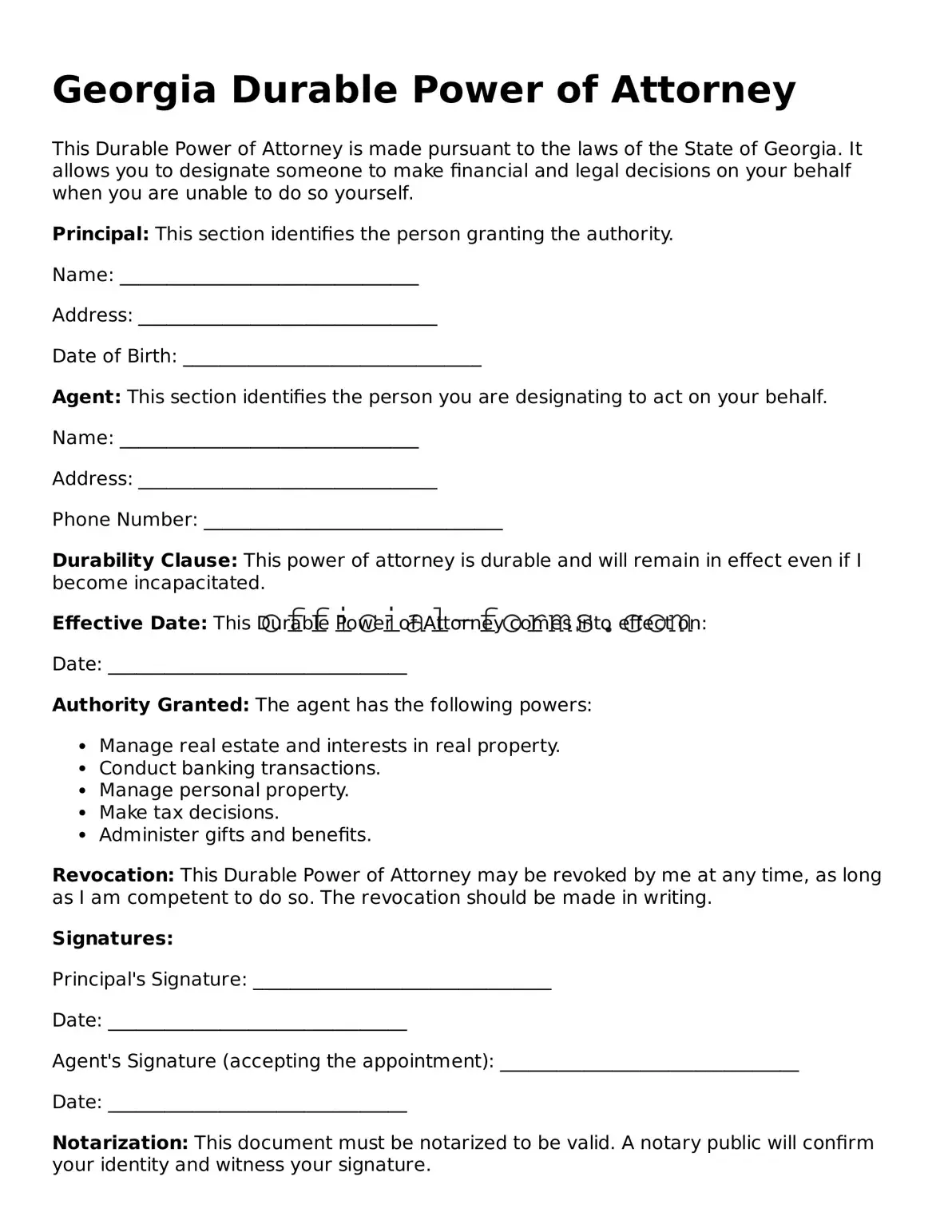Official Georgia Durable Power of Attorney Document
A Georgia Durable Power of Attorney is a legal document that allows an individual, known as the principal, to appoint someone else, referred to as the agent, to make decisions on their behalf. This form remains effective even if the principal becomes incapacitated, ensuring that their financial and legal matters are managed according to their wishes. Understanding the nuances of this document can empower individuals to make informed choices about their future care and financial management.
Open My Durable Power of Attorney Now

Official Georgia Durable Power of Attorney Document
Open My Durable Power of Attorney Now
Don’t leave your form incomplete
Finish Durable Power of Attorney online quickly from start to download.
Open My Durable Power of Attorney Now
or
➤ PDF
